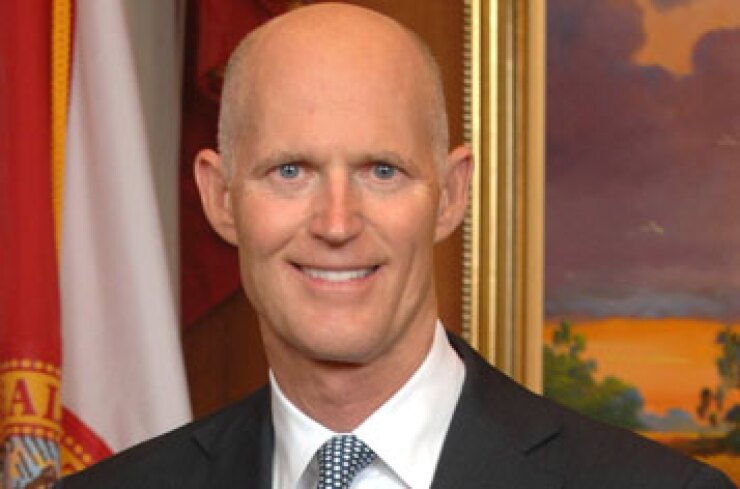
BRADENTON, Fla. - The U.S. Supreme Court will allow Florida to proceed with its lawsuit against Georgia in their long-running fight over water rights.
The high court on Nov. 3 said Florida can to file a complaint seeking equitable apportionment of the Apalachicola-Chattahoochee-Flint River Basin, which provides fresh water for drinking and marine resources in Georgia, Florida and Alabama.
The current legal dispute does not include Alabama, but continues a decades-long court battle over the matter.
Georgia has 30 days to respond to the Supreme Court ruling.
Florida Gov. Rick Scott said the state's suit is a major victory for families and businesses of Apalachicola in the northern part of the state that are affected by diminished water quality and supply that continues to choke the region's oyster bays.
"We took bold action last year to protect the waters of Apalachicola from Georgia's unchecked use of these critical resources," said Scott, referring to the state's 2013 petition for injunctive relief.
"For 20 years, Florida has tried to work with Georgia, and families have continued to see their fisheries suffer from the lack of water," Scott said in a statement. "The Supreme Court takes up so few cases, and their willingness to hear Florida's demonstrates the merits of our case."
In a September filing, Department of Justice Solicitor General Donald Verrilli said that there are sufficient allegations to support Florida's suit. However, he urged the Supreme Court to deny the state's request to file a complaint until after the release of a pending report from the U.S. Army Corps of Engineers.
The Supreme Court ruling allowing the case to proceed did not address Verrilli's filing, according to Jennifer Meale, spokeswoman for Florida Attorney General Pam Bondi whose office filed the suit.
In a previous lawsuit between the states, a lower court ruled in 2012 that the Corps should update water control manuals that are used to determine how to operate federal reservoirs.
One of the largest federal reservoirs is connected to Lake Lanier, a manmade lake that serves the drinking water needs of the Atlanta region. So far, the rewritten Corps' manual has not been released.
Scott first said that he would ask the Supreme Court to review the water dispute in August 2013, after he received a federal fisheries disaster declaration from the National Oceanic Atmospheric Administration for north Florida's drought-starved commercial oyster region. Apalachicola's oyster bays are dependent on fresh-water that flows downstream from Georgia.





